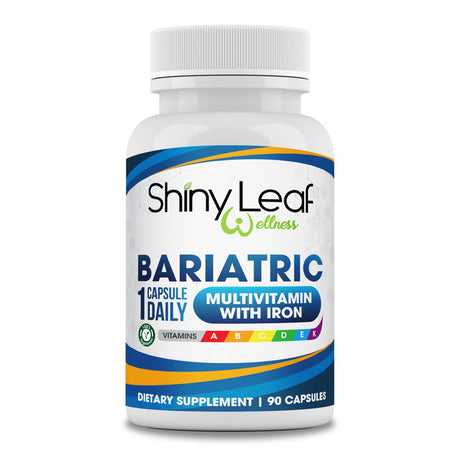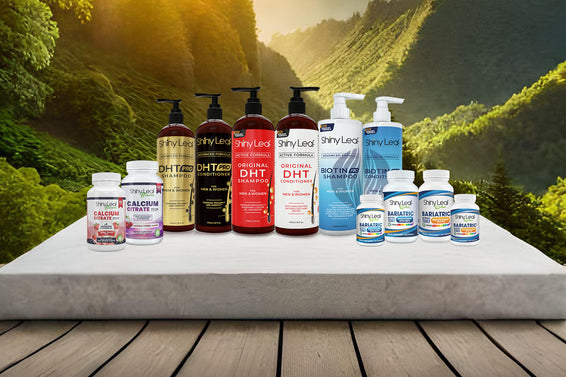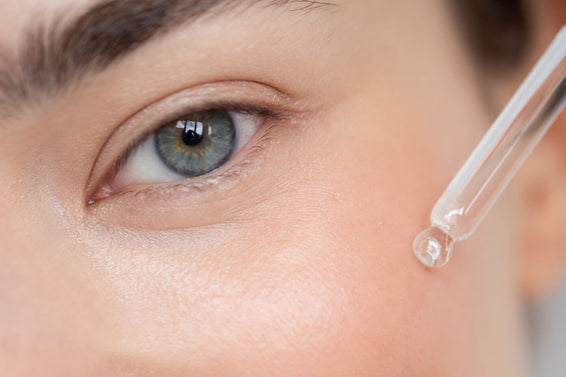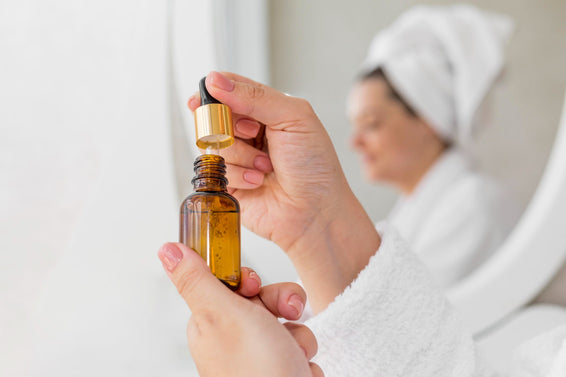Anti-Aging
Aging gracefully is an art that only a few have perfected. You don’t have to be a Hollywood star to look young and fab. If you notice wrinkles and fine lines developing, it’s time to round up your most trusted skin care brands to build an anti-aging routine. Follow the best skin care tips guide to learn about the various ways you can keep the youth of your skin.
You can’t run away from time, it catches up to you in one way or another. However, you might experience the early onset of aging, which is very noticeable on the skin. If you want to age beautifully, practice anti-aging tips that will save your skin. Look younger, fresher, and brighter with these anti-aging secrets. Find the best solution to wrinkles and fine lines here!

All About Skin Aging
If there’s anything you need to prioritize now, it is your skin. Most causes of skin aging are factors that you can’t control. Skin aging is a serious concern that leads to more problems. It makes skin weaker and more vulnerable to damage. Sagging skin, dull skin, dark spots – these are signs that your skin is damaged. Learn how skin aging happens and how to stop it.
Causes of Premature Skin Aging
Skin aging can affect you even when you are in your 20s. There are reasons that you lose the softness of your skin even when you’re in your prime. The following are factors that can speed up skin aging:
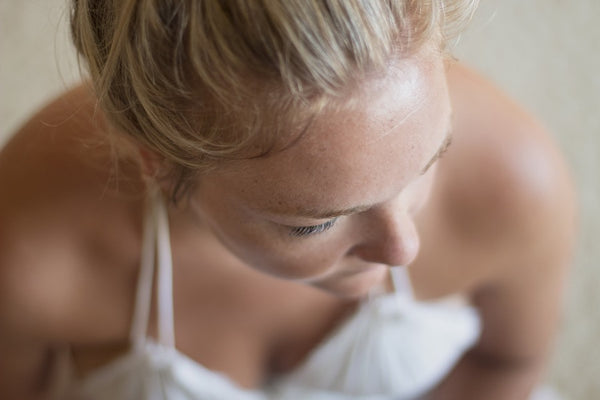
- Sun Damage – The most common reason for premature skin aging is sun damage. UVA and UVB rays damage the skin in different ways. You are exposed to both when you leave your house. Using an umbrella or wearing long sleeves doesn’t protect your skin. Only applying sunscreen can prevent sun damage.
- Lack of Sleep – When you don’t hit the 7-8 hours target for sleep often, it might be the cause of those wrinkles. Sleep helps refresh and repair the body and that includes your skin. During sleep, the functions of your body speed up including skin cell renewal and repair. Not sleeping enough can hamper these functions and damage them over time.
- Stress – Stress can damage your skin. Studying, working, taking care of kids – these are all very stressful situations that can cause premature skin aging. Stress speeds up cellular aging, which is a major contributor to the loss of volume and elasticity of the skin. Did you know that stress can give you pimples and acne too? It triggers the hormones linked to oil production.
- Unbalanced Diet – The food you eat is the primary sources of nutrients that keep your skin healthy. An unbalanced diet can damage your skin too. When you eat too much of refined sugar, fatty food, or salty food, it can speed up skin aging.
- Unhealthy Habits – Two to three glasses of wine might sound like a good idea to wind down after a busy day. However, it is not good for your skin, especially if it is your habit. Drinking alcohol and smoking causes premature skin aging. Nicotine and alcohol can dehydrate your skin. Their effects often make skin look dull and ashy looking. Some unhealthy habits you need to watch out for include scratching your skin and leaving your pillows unwashed.
- Dehydration – Your body weight is made up of 50-70% water so when you don’t drink enough water, it damages the skin. Dehydration robs the moisture from the skin, making it dry, saggy, and dull. When you don’t drink the recommended 8 glasses of water, your skin will look tired and old.
- Using Harmful Products – Harmful products can remove the moisture from skin and trigger premature skin aging. Regular products may contain chemicals or other toxic ingredients that can be harmful to skin. Drying products such as detergents can dry the skin and speed up damage. It is important to use suitable products for your skin. See the various types of skin care products here.
Damage Caused by Skin Aging
Skin aging damages the functions of your body, which leads to the development of skin aging symptoms. These various types of changes occur eventually as you age, but you can experience them when you trigger skin aging.
As you age, you lose the following substances that your body naturally produces. These substances are important in keeping the moisture, volume, and elasticity of skin:
- Hyaluronic Acid – Hyaluronic acid is a clear substance produced by your body. It holds collagen and is good for providing moisture especially in areas of your body where lubrication is necessary. Hyaluronic acid has the highest concentrations of your skin, eyes, and joints. They are ingredients used in serums as well.
- Collagen – Collagen is a group of proteins found in the tissues of your skin. They connect tissues together to keep your skin elastic. Collagen is also capable of holding a large amount of water to retain the volume and moisture of the skin.
- Elastin – Elastin is responsible for retaining the shape of your skin. It is a flexible protein that holds the tissues together and to help keep the structure of the skin. You can pull your skin and it will go back to its original shape because of elastic.
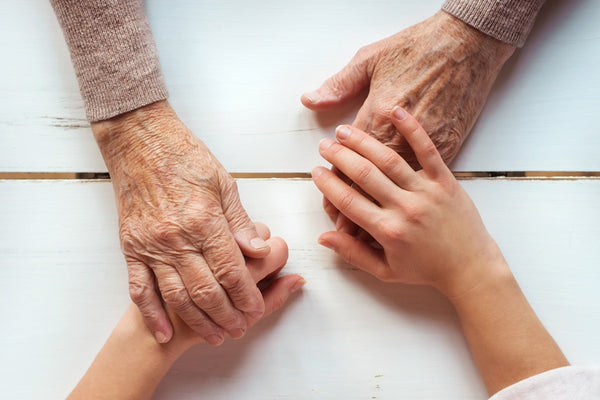
Loss of Moisture
Moisture is not only found on the surface of the skin. Moisture affects the volume and elasticity of the skin. Lack of moisture causes sagging and dullness. Your skin loses its ability to retain moisture as well. This causes dryness, overproduction of oils, dullness, and rough skin texture. It contributes to the development of the signs of skin aging.
Loss of Volume
One of the characteristics of a young and healthy skin is volume. Volume is responsible for the shape of your skin including the peaks and contours of your face. When you experience loss of skin volume, you might notice that your face looks a bit withdrawn, your cheeks start to lose their shape, and your skin becomes thinner. This causes the skin to be more sensitive and easily damaged. Volume is also the suppleness or softness of your skin.
Loss of Elasticity
Elasticity is what makes your skin firm and tight. Elasticity is different from volume. It affects the ability of your skin to keep a tight. When your skin loses elasticity, it means that there is not enough collagen and elastin. These substances affect the strength of your skin and how the tissues connect to each other. Losing elasticity leads to the formation of wrinkles and fine lines.
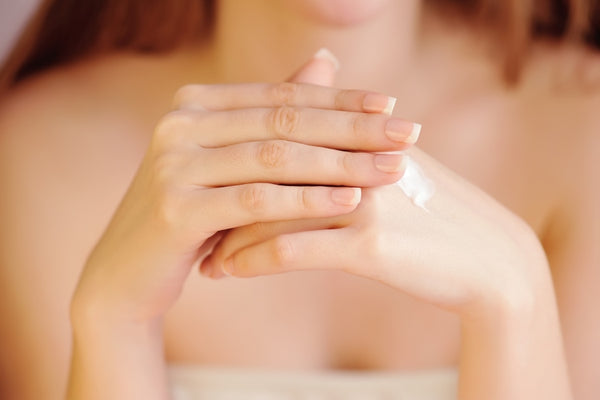
Signs of Skin Aging
Here are the signs of skin aging you should watch out for:
- Sun Spots – Melanocytes are cells that give your skin color. Excessive exposure to UV rays can trigger hyperpigmentation – a condition that causes your skin to develop darker spots called sunspots. Sunspots appear in small patches of skin that has a darker color than your skin tone.
- Dull and Dry Skin – Dull and dry skin happens due to lack of moisture. When your skin loses water content, it also loses volume. A dull and dry skin may feel rough to the touch.
- Fine Lines – Fine lines are different from wrinkles. They mostly appear as straight lines that cause dips on the skin. They can develop wrinkles if left untreated. Lack of moisture and facial expressions can cause the development of fine lines. Common areas where fine lines form are the eyes and mouth.
- Wrinkles – Wrinkles are deeper and more distinct than line lines. They can appear all over the body. Creases on skin happen due to the loss of elasticity, volume, and moisture. Wrinkles are one of the most problematic signs of skin aging.
- Sagging Skin – Skin sags due to the loss of volume and elasticity. Collagen and elastin decrease as the body ages. Premature skin aging can speed up the loss of both substances that keep your skin healthy. Sagging skin is described as lacking in fat or suppleness with a thin surface that stretches.
How Anti-Aging Products Work
Anti-aging products are important to keep your skin youthful. Most anti-aging products contain ingredients that help nourish and maintain healthy skin. These products may come in the form of creams, gels, lotions, and serums. The products suitable for your skin also depend on your skin type and signs of aging you need to address.
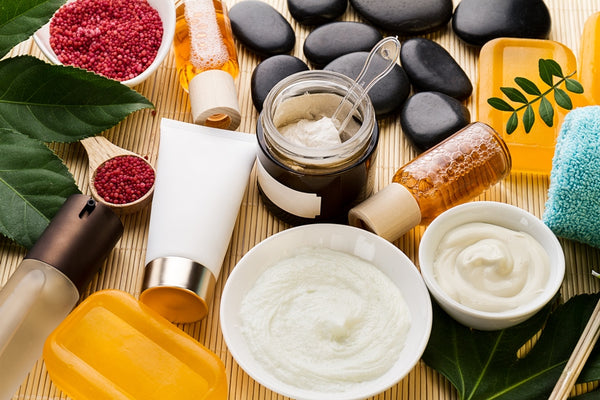
Anti-Aging Ingredients
What makes anti-aging products work are the ingredients that the skin needs. These ingredients help restore the moisture, volume, and elasticity of skin:
- Antioxidants – Antioxidants fight free radicals to protect your skin from damage. They reduce the risks of harmful UV rays as well. You can find antioxidants in various organic ingredients. Vitamin E and A are potent antioxidants that keep your skin radiant.
- Alpha Hydroxy Acids – Alpha hydroxyl acids have various types such as glycolic acid, lactic acid, and citric acid. They help exfoliate the surface of the skin to reveal the new skin underneath. AHAs remove dead skin cells that may clog the pores and stimulate your skin to give you a smoother and brighter skin tone. It helps improve the ability of skin to retain moisture as well.
- Hyaluronic Acid – Hyaluronic acid is naturally found in your body. It holds a large amount of water to keep your skin hydrated. Hyaluronic Acid improves the suppleness of your skin. It is often used as an ingredient in serums.
- Peptides – Peptides are active ingredients that improve the elasticity and firmness of skin. It keeps the skin cells intact and helps stimulate the production of proteins and collagen on the skin.
- Retinol – Retinol is a vitamin A derivative that is also a powerful antioxidant. It stimulates the skin to produce more collagen to improve skin elasticity and volume. Retinol helps give you an even skin tone as well.
- Organic Extracts – Organic extracts are derived from organic ingredients. The most common type of organic extracts is essential oil. The best organic extracts are plant-based because they are rich in minerals and nutrients that improve your skin. Castor oil is popular due to its wide range of benefits. You can use it for cleansing, for moisturizing, and to treat skin concerns.
Benefits of Anti-Aging Products
Anti-aging products nourish and protect your skin. They replenish nutrients that the skin needs to repair itself and its functions. These anti-aging products will not only reduce the appearance of signs of skin aging. They help improve your skin’s overall health. Here are the benefits of using anti-aging products:

- Provides Moisture for Skin – Anti-aging products deliver moisture to the deeper layers of your skin to give it better volume and elasticity. Most anti-aging products are light on skin to help with fast absorption.
- Delivers Nourishment to Skin – To counter the damage caused by skin aging, you need nutrients that maintain the health of your skin. Anti-aging products often contain active ingredients that replenish nourishment to the deeper layers of skin. They deliver substances that can stimulate skin for repair and renewal too.
- Helps Protect the Skin – Anti-aging products will protect your skin from damage caused by free radicals, pollution, and UV rays. You can find a lot of sunscreens that contain anti-aging ingredients, which helps increase their efficiency.
Quick Guide to Anti-Aging for Every Decade of Your Life
Anti-aging products address the needs of your skin. Since the skin gradually deteriorates over time, you will need different kinds of products in every decade of your life. Choosing the right products will help address certain skin concerns and slow down skin aging in general. Here’s a quick guide to what your anti-aging needs for every decade.
Your 20s
Your 20s is a sweet spot between puberty and visible skin aging. This decade is the best time to start building an anti-aging routine. Skin damage builds up and may not be noticeable during your 20s. What you need are the right products to protect your skin.
Skin Concerns:
- Sun damage
- Skin damage caused by drinking or smoking
What You Need:
- Sunscreen with wide-spectrum SPF 30
- Products rich in antioxidants
- Essential oils rich in anti-aging nutrients

Your 30s
Cell metabolism slows down when you reach your 30s. Skin repair and renewal slow down too. This affects the ability of the body to produce and maintain collagen and elastin production. This is why your skin loses volume during this decade. Wrinkles tend to develop during your early thirties. It becomes more sensitive as well. You might experience acne and pimples again during this time of your life. Wrinkles tend to develop during your early thirties.
Skin Concerns:
- Wrinkles
- Fine lines
- Crow’s feet
- Acne and pimples
- Thin skin volume
What You Need:
- Products that contain anti-aging ingredients
- Products that contain vitamin B3 to help with cell renewal
- Rich moisturizers and moisture-retaining products
- Serums
For busy moms who think they don't have time for some much-needed skin care, here are four routines you can try. Whether you only have 5 minutes or an hour to spare - you can still have an effective skin care.
Your 40s
During your 40s, wrinkles deepen and become more pronounced. This is because your skin loses moisture, volume, and elasticity drastically. This is also when your skin becomes drier. Acne and pimples may not happen as much due to lack of oil production. It affects your skin color as well, where you notice dark spots and age marks appearing. Due to lack of skin volume, under eyes will develop dark circles.
Skin Concerns:
- Wrinkles
- Dark circles under eyes
- Sunspots
- Increasing dryness of skin
What You Need:
- Skin repair serums
- Firming creams or serums
- Fast-absorbing moisturizers
- Intense moisturizers
- Smoothing serums and creams
- Products that replenish collagen and hyaluronic acid

Your 50s and 60s
Your skin becomes excessively dry. Estrogen levels decrease, which inhibits the ability of skin to produce oil. You might notice that wrinkles and fine lines are more permanent. Skin starts to sag due to lack of collagen and elastin. You are losing fat on your face, which makes the muscles less defined. Dark spots appear all over the body and not just in the face. Your skin loses volume and will have increased sensitivity.
Skin Concerns:
- Sagging skin
- Defined wrinkles
- Excessive dryness of skin
- Age marks and dark spots all over the body
- Heightened skin sensitivity
- Rough skin textures
What You Need:
- Regenerating products
- Rich and intense moisturizers
- Wrinkle fading products
- Firming products
- Night creams
- Contour creams and serums
Anti-Aging Habits to Improve Your Skin
Just because you have fine lines on your face does not mean that you’re doomed. There are small habits that you can practice to improve the health of your skin. It will help if you start these habits early to ensure that you look just good as Hollywood actors without a glam squad even when you’re in your 50s. Try these tips for a younger-looking skin:
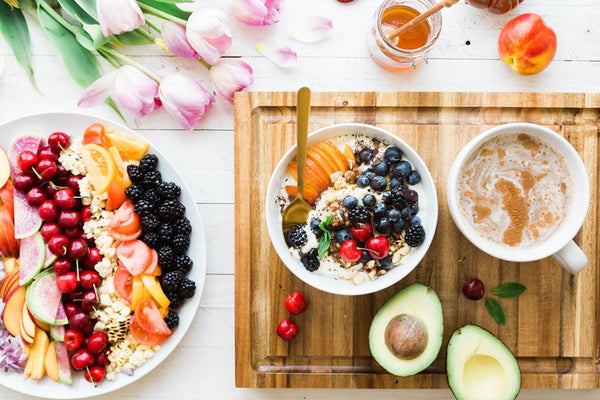
- Avoid sleeping with makeup on. Most cosmetics contain ingredients that will not only block your pores. They can inhibit the ability of your skin to repair itself.
- Stop smoking and drinking. Without nicotine and alcohol, your skin improves drastically. It improves your skin to make it more radiant and softer.
- Eat your way to the younger-looking skin. There are food packed with nutrients and antioxidants that slow down skin aging. Have a healthy diet to nourish the skin and prevent premature skin aging.
- Massage your face and skin for 1-2 minutes every morning. This stimulates blood flow on the skin to ensure that it stays healthy. Massaging your face improves your lymphatic system as well, to get rid of toxins that can damage your skin.
- Always apply sunscreen. Sunscreen does not only moisturize your skin, it shields your skin against harmful UV rays. Apply the product even during cloudy days or even in winter.
- Cleanse skin twice a day. Cleanse your skin after you wake up and before you sleep to remove impurities that may clog the pores.
- Exfoliate gently. Exfoliating removes dead skin cells and stimulates cell renewal. It will reveal a softer, smoother, and brighter skin underneath. However, you need to make sure that you don’t damage skin with harsh exfoliation.
- Use oils to moisturize twice a day. Oils like argan oil are rich in vitamins and minerals that nourish the skin. Essential oils such as argan oil contain nourishing substances like antioxidants, which are potent anti-aging substances that will maintain the youth of your skin. For more oils you can use as moisturizer, visit the page below.
- Get professional advice. There are things that happen below your skin that you might not be aware of. Getting professional advice helps you understand your skin better and see if there are any improvements that can help prevent skin aging.
- Learn to manage your stress. Destressing is good for your body and mind. You will look younger as well, so you should learn to manage your stress. Most of all, remember to smile always!
You can look as good as you were in your prime just by knowing the best anti-aging products your skin needs. Make sure to moisturize, nourish, and protect your skin every day. The secret to a youthful skin is to have a proper skin care routine. Your skin deserves the best anti-aging products. Look young and feel confident in your own skin.





